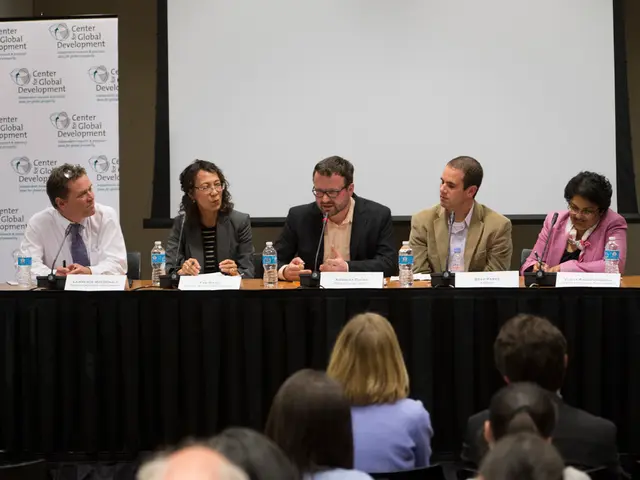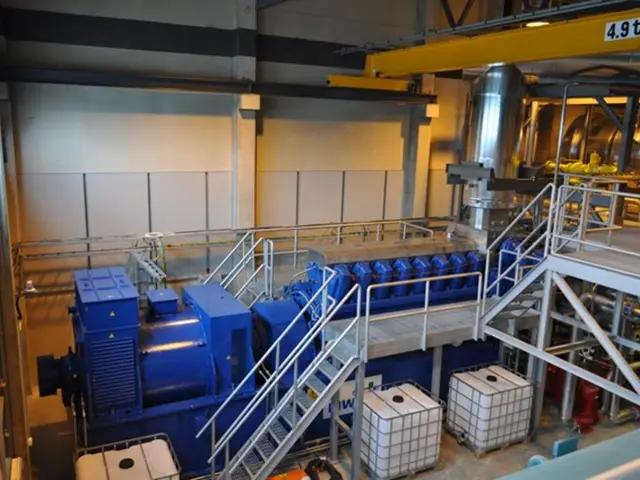Collaboration Powers Achievement: Unraveling the Essence of Teamwork
In many workplaces, the quote "Teamwork makes the dream work" continues to resonate, particularly in culturally diverse environments where team members may hold differing beliefs. After years of collaboration across various teams prior to joining UNI Global Union, I've learned valuable insights about fostering teamwork and morale. The following discussion explores the significance of teamwork and its key factors.
The Importance of Teamwork
Teams comprising individuals with distinct skill sets can address challenges more effectively and streamline repetitive tasks by reducing redundancy. Additionally, knowing your teammates rely on you encourages personal accountability and propels team members to strive for shared success. In a survey I recently conducted, 70% of participants agreed that this sense of interdependence instilled a strong commitment to team achievement rather than individual accomplishment.
The supportive nature of a cohesive team enables team members to celebrate victories, offer constructive criticism during setbacks, and maintain open communication for adaptability in the face of any challenges. These open dialogues set the foundation for a resilient and adaptable team that thrives in diverse situations.
Defining Effective Teamwork
Clear Communication
Effective communication is instrumental in preventing misunderstandings and ensuring all team members have a comprehensive understanding of project status, challenges, and essential details to make informed decisions. Keeping everyone informed about the bigger picture allows them to adjust their strategies accordingly.
Respect
Working in a diverse environment brings a wealth of perspectives, enhancing UNI Global Union's overall success. It's vital to recognize and value these differences, creating an environment where all team members feel respected and engaged. Recognizing team members' contributions fuels their motivation to excel and collaborate more effectively with others.
Mutual respect also includes creating a safe space for admitting mistakes, fostering an environment where team members can learn from their experiences and grow.
Collaboration
Shared goals guarantee that everyone is working together towards the same outcome. Aligning individual goals with the team's goal fosters a true sense of shared direction, ensuring every person is invested in the collective outcome and willing to support others to ensure success.
Equal Participation
Fair task distribution is essential for empowering each team member, providing them a chance to prove their worth and feel a sense of ownership over the project's success. Involving even quieter team members ensures all ideas are considered, ultimately resulting in a stronger and more creative solution.
Positive Attitudes
A positive outlook maintains morale, enhances productivity, and fosters a willingness to confront challenges. In my survey, a strong correlation was found between positive team energy and heightened productivity. It is essential for teams to focus on solutions rather than being bogged down by negativity. Self-acknowledgment and team appreciation are also crucial motivators, encouraging team members to set higher goals.
See more: 9 Examples of Effective Team Dynamics*
Becoming a Good Team Player
Reliability
Consistently fulfilling responsibilities demonstrates professionalism, earning teammates' trust and confidence in the project's success.
Active Listening
Paying close attention to teammates' verbal and nonverbal cues helps foster open communication, enabling team members to address potential issues promptly and make better-informed decisions.
Clear Communication
Simplifying complex ideas ensures all team members can easily comprehend and contribute to discussions, eliminating confusion and wasted time.
Offer Assistance and Support
Help and encourage teammates who are struggling or overloaded with work. This support fosters positive reciprocity, making team members more willing to work together during crises.
Be Open to Feedback
Actively accepting constructive criticism and continuously seeking to improve are key to personal growth. A closed-minded approach to feedback hampers career progression.
Maintain a Positive Attitude
Positivity encourages enthusiasm, productivity, and unity in teams. Collaborative settings can harness the power of collective optimism, leading to impressive success stories.
Encouraging Teamwork Among Employees
As leaders, fostering an environment of teamwork is essential to achieve organizational objectives. Here are some tips for team building:
Set Clear Common Goals
Define the team's overall objectives, empowering them to make better decisions and stay motivated. Break down larger goals into individual tasks with specific deadlines, allowing members to celebrate their own progress along the way.
Promote a Sharing Culture
Create a safe space for open dialogue and feedback, fostering trust and collaboration between team members. Regular team meetings, team seminars, and anonymous feedback channels are tools that can build these connections.
Recognize Individual and Team Achievements
Acknowledge both individual and team accomplishments, giving team members a sense of pride and motivation. Team outings, verbal recognition, or written acknowledgment serve as impactful rewards.
Team-Building Activities
These activities help in breaking down barriers, encouraging communication and bonding among team members on a personal level. In non-work settings, these interactions foster stronger connections and mutual respect.
Address Conflicts
Conflicts arising from cultural differences or disagreements need to be addressed quickly and responsibly. Actively listen to both parties, find common ground, and document any agreed-upon solutions to avoid future misunderstandings.
In conclusion, working with diverse individuals presents challenges, but the insights gained from my recent survey at UNI Global Union can help you build a strong, harmonious team. Please reach out if you require further guidance on cultivating healthy team dynamics.
Relevant data integration
In organizations like UNI Global Union, effective teamwork and team dynamics play a significant role in achieving collective goals. Collaborative problem-solving, improved communication, fostering innovation and creativity, building resilience, and adaptability are all essential elements for the organization's success. Aligning team goals, building trust and respect, professional development, and promoting a positive work environment are some strategies utilized by UNI Global Union to foster effective teamwork.
- In culturally diverse workplaces, teams with distinct skill sets can address challenges effectively by streamlining tasks, encouraging personal accountability, and fostering shared success.
- Effective communication, respect, collaboration, equal participation, and positive attitudes are essential factors in defining effective teamwork.
- To cultivate a cohesive team, clear communication, recognizing and valuing differences, shared goals, fair task distribution, and a positive outlook are vital.
- Good team players exhibit reliability, active listening, clear communication, offering assistance, being open to feedback, and maintaining a positive attitude.
- Leaders can foster teamwork by setting common goals, promoting a sharing culture, recognizing individual and team achievements, organizing team-building activities, and addressing conflicts promptly and responsibly.
- In diverse workplaces, the significance of teamwork extends beyond individual achievements, impacting health and wellness, career advancement, and business success, a concept that is further emphasized in discussions around workplace wellness, diversity and inclusion, science, finance, and corporate leadership.








